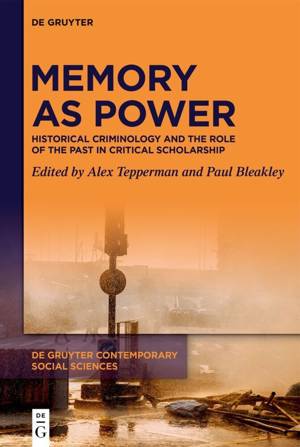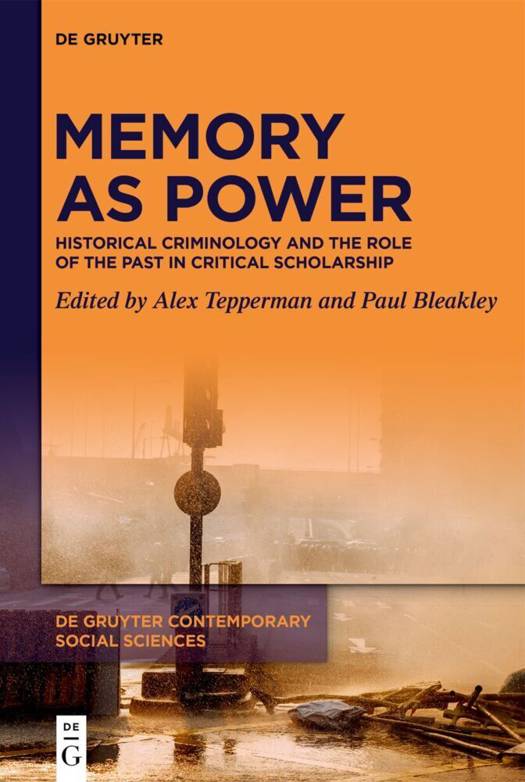
- Retrait gratuit dans votre magasin Club
- 7.000.000 titres dans notre catalogue
- Payer en toute sécurité
- Toujours un magasin près de chez vous
- Retrait gratuit dans votre magasin Club
- 7.000.0000 titres dans notre catalogue
- Payer en toute sécurité
- Toujours un magasin près de chez vous
Memory as Power
Historical Criminology and the Role of the Past in Critical Scholarship
Description
Featuring a collection of works by scholars from across a variety of disciplines, this book outlines the principles of a critical historical criminology. For historical criminologists, this book provides a framework of how to engage with historical material in a way that is critical in its interrogation, instructive in terms of how the past impacts upon our current (and future) practice, and attentive to the dangers of presentism. For critical criminologists, this book highlights the potential benefits of looking to the past to inform our understanding of the critical issues we face in the current social, cultural, and political context in a purposeful, historically sensitive way.
This remarkable volume aims to model how to practice a critical version of historical criminology that has implications for practice in the contemporary period. It does so by incorporating contributions that emphasize robust, high-quality historical research that nonetheless speaks to issues and problems of premium concern to present-minded critical criminologists, bridging a gap between the past and present through an operationalization of the past that allows readers to better understand the criminological concerns of the present. In this sense, it can be used pedagogically, as a collection of works which model critical historical criminology, and is thus of instructional use alongside its research contribution.
Spécifications
Parties prenantes
- Editeur:
Contenu
- Nombre de pages :
- 253
- Langue:
- Anglais
- Collection :
- Tome:
- n° 39
Caractéristiques
- EAN:
- 9783111317359
- Date de parution :
- 27-01-25
- Format:
- Livre relié
- Format numérique:
- Genaaid
- Dimensions :
- 156 mm x 234 mm
- Poids :
- 566 g

Les avis
Nous publions uniquement les avis qui respectent les conditions requises. Consultez nos conditions pour les avis.





